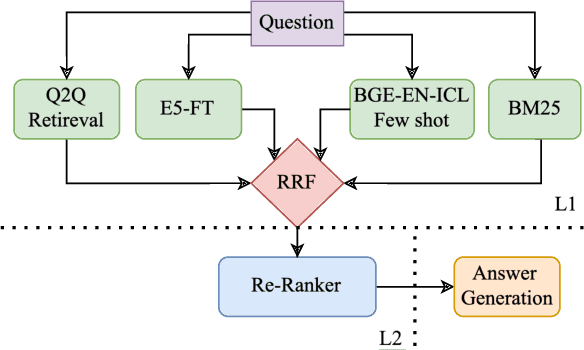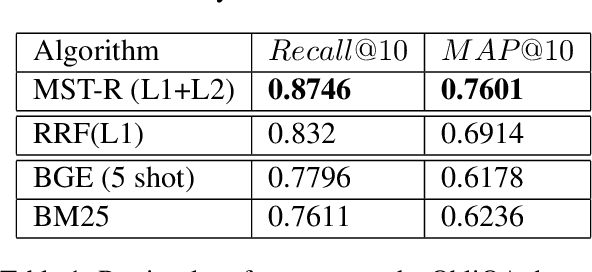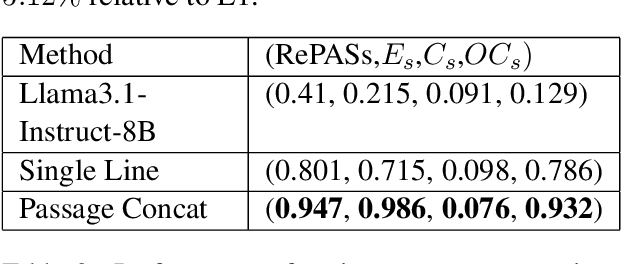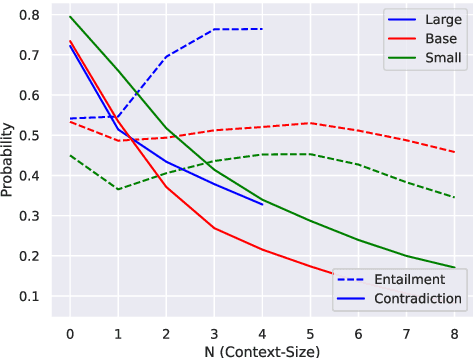Karan Dhingra
MST-R: Multi-Stage Tuning for Retrieval Systems and Metric Evaluation
Dec 13, 2024



Abstract:Regulatory documents are rich in nuanced terminology and specialized semantics. FRAG systems: Frozen retrieval-augmented generators utilizing pre-trained (or, frozen) components face consequent challenges with both retriever and answering performance. We present a system that adapts the retriever performance to the target domain using a multi-stage tuning (MST) strategy. Our retrieval approach, called MST-R (a) first fine-tunes encoders used in vector stores using hard negative mining, (b) then uses a hybrid retriever, combining sparse and dense retrievers using reciprocal rank fusion, and then (c) adapts the cross-attention encoder by fine-tuning only the top-k retrieved results. We benchmark the system performance on the dataset released for the RIRAG challenge (as part of the RegNLP workshop at COLING 2025). We achieve significant performance gains obtaining a top rank on the RegNLP challenge leaderboard. We also show that a trivial answering approach games the RePASs metric outscoring all baselines and a pre-trained Llama model. Analyzing this anomaly, we present important takeaways for future research.
Multi-objective Reinforcement Learning based approach for User-Centric Power Optimization in Smart Home Environments
Sep 29, 2020



Abstract:Smart homes require every device inside them to be connected with each other at all times, which leads to a lot of power wastage on a daily basis. As the devices inside a smart home increase, it becomes difficult for the user to control or operate every individual device optimally. Therefore, users generally rely on power management systems for such optimization but often are not satisfied with the results. In this paper, we present a novel multi-objective reinforcement learning framework with two-fold objectives of minimizing power consumption and maximizing user satisfaction. The framework explores the trade-off between the two objectives and converges to a better power management policy when both objectives are considered while finding an optimal policy. We experiment on real-world smart home data, and show that the multi-objective approaches: i) establish trade-off between the two objectives, ii) achieve better combined user satisfaction and power consumption than single-objective approaches. We also show that the devices that are used regularly and have several fluctuations in device modes at regular intervals should be targeted for optimization, and the experiments on data from other smart homes fetch similar results, hence ensuring transfer-ability of the proposed framework.
 Add to Chrome
Add to Chrome Add to Firefox
Add to Firefox Add to Edge
Add to Edge